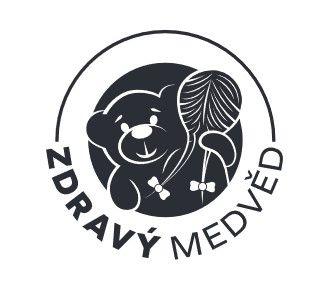Synonym: ubiquinone, ubidecarenone, coenzyme Q
Characteristics: Coenzyme Q10 (CoQ10) is 1,4-benzoquinone. The Q in the name indicates the quinone group and the number 10 is related to the number of attached isoprenyl subunits (lipophilic tails). It is a powerful fat-soluble antioxidant and a necessary cofactor in mitochondrial oxidative phosphorylation in the production of ATP (adenosine triphosphate), or the universal source of energy. This process of cellular respiration produces 95% of the total energy reserved in the human body. This makes coenzyme Q10 vital for the optimal functioning of cells in the body and can prevent cell damage associated with aging and some diseases. It can be purchased as a dietary supplement.
Absorption: Coenzyme Q10 is absorbed from the small intestine into the lymphatic system and can then enter the blood. Hydrophobicity (inability to dissolve in water) and large molecular weight limit its absorption, which also depends on the number of lipids present in food. Absorption is lower in the presence of an empty stomach and higher in the presence of a high-lipid diet. After its action, coenzyme Q10 is reduced and forms hydroquinone, which is capable of recycling and regenerating other antioxidants, such as tocopherol and ascorbate.
Dietary supplements: Supplemental coenzyme Q10 comes in two redox forms: ubiquinone and ubiquinol. The ubiquinone form is the oxidized form, which is an electron acceptor. The ubiquinol form is the reduced form, which is an electron donor. In the human body, coenzyme Q10 molecules are converted back and forth from the oxidized form to the reduced form many times, taking in and releasing electrons as the body needs them. Raw material ubiquinone is cheaper, more stable and better documented than ubiquinol. Coenzyme Q10 has a crystalline form that cannot be absorbed by the body. The success or failure of absorption of CoQ10 molecules depends largely on the specific oils in which the CoQ10 capsule manufacturer attempts to dissolve the raw CoQ10. Certain substances can inhibit the absorption of coenzyme Q10, e.g. too much vitamin C and E.
Natural sources: The body produces CoQ10, but much less than it needs. CoQ10 levels decline with aging, reducing the body's ability to effectively manage inflammation and oxidative stress. Unfortunately, it is virtually impossible to compensate for the decline in endogenous CoQ10 synthesis by consuming more CoQ10-rich foods. Vegetable oils (soybean, olive) are generally rich in CoQ10. Other important sources include sesame seeds, offal, cruciferous vegetables (broccoli and cauliflower), parsley. Cooking food at high temperatures significantly reduces the amount of coenzyme Q10.
Effect: It is indicated for patients with cardiovascular problems including congestive heart failure and systolic hypertension, as well as for the prevention of Parkinson's disease, migraine, periodontal disease, and diabetes. Beneficial effects have also been observed in myopathy caused by statin therapy (medicines for elevated cholesterol). Some evidence suggests that CoQ10 applied to the skin (in creams or serums) may help fight the visible signs of aging. This may be because it scavenges free radicals that can cause wrinkles.
Deficiency: Low levels of coenzyme Q10 cause symptoms such as muscle weakness, fatigue, reduced stamina and premature aging of the skin and hair.
Recommended daily dose: 30‒100 mg. For patients with heart disease, typical daily doses are 100‒300 mg. In the treatment of neurodegenerative diseases, daily doses of 600‒1200 mg are used.
Adverse Effects: CoQ10 supplementation is considered safe and well tolerated. Nevertheless, gastrointestinal discomfort may occur, which has been observed at doses higher than 1,200 mg per day.
Interactions: CoQ10 may interact with blood thinners (warfarin), blood pressure medications, and some anticancer drugs.
Pregnancy: The use of CoQ10 during the first trimester of pregnancy has not been studied. However, there is evidence that taking CoQ10 is safe after 20 weeks.
Breastfeeding: There is not enough information, so it is not recommended.
Toxicity: CoQ10 supplementation in either form – ubiquinone or ubiquinol – is safe and well tolerated. The observed safe upper intake level of coenzyme Q10 for adults is 1,200 milligrams per day.
Coenzyme Q10
Chat with us on WhatsApp



